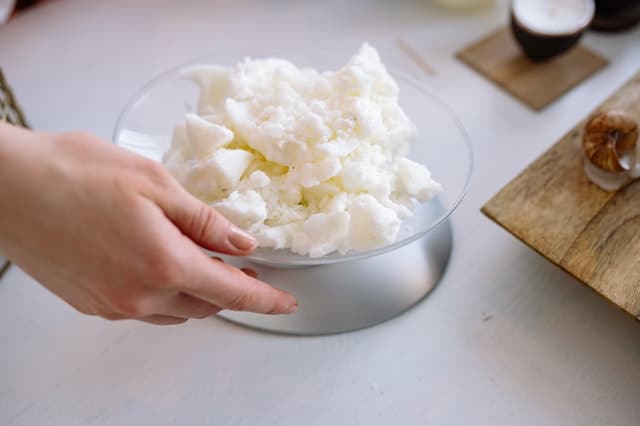Top Benefits Of Cottage Cheese
In the culinary world, there are many types of cheese with different tastes and flavours and each type has its own use depending on the purpose of the user. Among the common cheese, cottage cheese is the most frequently used not only in baking but also in daily cooking. So, what is cottage cheese and what are the top benefits of cottage cheese?
See also :
- 12 Ways To Manage Depression Without Medication
- 7 Habits That Drain Your Energy
- 8 Foods That Increase the Risks of Heart Attacks
- 7 Healthy Tips for Teenagers
- What is Granola? Is Granola Healthy?
- Red clover and its medicinal properties
- 7 Home Remedies To Relieve Constipation Naturally
- 5 Easy Ways to Control Overeating Desire
Natural Beauty Tips – Beauty Tips
What is cheese?
Making your own cheese can be called the process of removing water, lactose and some other minerals from milk to get a concentrate of milk fat and protein. The main ingredients for making cheese are milk, enzymes, bacterial cultures and salt. Generally, cheese is made from cow’s milk, but it can also be made from the milk of other animals such as goats and buffalo. Cheese making starts from selecting the best quality milk, because it will affect the yield, taste, texture and aroma of the cheese.
Cottage cheese
Cottage cheese, a type of soft-cheese that is easy to make, versatile and economical. This cheese is generally white, with a soft and creamy texture.
Culinary uses: Table cheese, snacks, salads, baking.
Cottage cheese is a type of fresh cheese that provides many vitamins and nutrients to the human body. Cottage cheese contains a number of important vitamins such as vitamins A, B1, B3, B6 and many essential minerals. Cottage cheese also does not need to be cooked to improve the taste,
Top Benefits Of Cottage Cheese
Cottage cheese is nutritious for the body, you can enjoy it by using it in ingredients for baking, cooking or using it directly.
The protein content in Cottage cheese helps the human body to efficiently recharge, so sports athletes often use this cheese.
Although helping people recharge, but if you know how to combine, Cottage cheese is also suitable for diet menus.
Calcium in cottage cheese will help you improve your health, reduce the risk of osteoporosis.
Cottage cheese is also beneficial for sick people or children with malnutrition.

How to use Cottage cheese?
Cottage cheese has a soft, light texture that makes it easy to incorporate into recipes. Specifically:
Mix cottage cheese with some fruits like berries, sliced bananas, sliced peaches, and melons.
In a waffle or pancake recipe, you can replace the milk with cottage cheese to make the dough.
Cottage cheese mixed in salad will add a moderate amount of protein to the dish.
For Smoothies recipes, you can also mix Cottage cheese with fruit and milk.
Use cottage cheese to replace some cream in baking and cooking recipes.
Cottage cheese is rich in protein and should be used as whipped cream when making Toasts.
Mix Cottage cheese into sauces as a substitute for milk.
Add Cottage cheese to rolls, cakes, breads or pies for extra flavour.
Benefits of eating cheese
Makes you strong
A quarter of cheese consists of protein (25 g protein per 100 g cheese), and they are known to build muscle, increase immunity, transmit nerve impulses, participate in the growth process – cell growth and repair. It is not for nothing that those who want to gain muscle mass try to consume as much protein as possible. Impact of protein supplements on muscle mass and strength in healthy adults such as:
Strengthen bones
About 99% of the calcium in the human body is stored in bones and teeth. The remaining 1% is in the blood and tissues. If there isn’t enough calcium in the blood, the body borrows it from the bones. And this make the bones fragile and the risk of osteoporosis increases.
Therefore, it is important to include foods rich in calcium, including cheese. 100 grams of cheese can provide the daily amount of calcium: there are about 1,000 mg of this macronutrient. The exact amount depends on different cheeses. Hard and semi-hard cheeses, such as Parmesan, Cheddar and Gouda, have more calcium.
In addition, cheese is one of the few foods that contain vitamin D. Specifically, it helps calcium to be better absorbed. Vitamin D is normally synthesized in the human body by exposure to sunlight, which is why it is so important to find additional sources on rainy, cloudy days.
Provides Energy
Cheese also contains vitamin B12, which is involved in the formation of red blood cells. These red blood cells carry oxygen to tissues and organs. So, if the human body lacks vitamin B12, the oxygen in the cells begins to be deficient. Anemia is caused by a lack of vitamin B12, and this leads to weakness, loss of concentration and breathing problems. It turns out that you need to eat cheese to literally breathe freely.
In addition, cheese is a fairly high-calorie product (average 300 to 400 kcal per 100 g), which means it can fill you up and give you energy for a long time.
What are the harmful effects of cheese?
Cheese has many benefits, however, it should be eaten in moderation. And this is the main rule. Eating a few pieces a day (about 25g) will give you nutrients and bacteria without harming your heart and physique.
Keep this in mind when choosing cheese, especially if you have heart or blood vessel problems. Some of the harmful effects are :
Increased blood pressure
It’s no secret that most cheeses are quite salty. And eating too much salt raises blood pressure, puts stress on the heart and blood vessels, and shortens life. Therefore, if you decide to eat cheese, you should reduce the number of other salty items on your menu.
Lose body shape
We must not forget that cheese contains a lot of fat, including saturated fats. Therefore, it cannot be called a dietary product and those who want to lose weight, as a rule, should avoid it.
Although cottage cheese is a nutritious fresh cheese with many benefits for human health, if you understand what cottage cheese is, you will know how to adjust the amount of cheese in your menu.
Popular Posts :
- 12 Ways To Manage Depression Without Medication
- 7 Ways To Overcome Laziness To Exercise
- 7 Habits That Drain Your Energy
- 8 Foods That Increase the Risks of Heart Attacks
- 7 Healthy Tips for Teenagers
- What is Granola? Is Granola Healthy?
- Red clover and its medicinal properties
- 7 Home Remedies To Relieve Constipation Naturally
- 5 Easy Ways to Control Overeating Desire
- Heart Attack At A Young Age
- Spirulina – a natural way to strengthen immunity
- 10 Signs Your Body Is Lacking Minerals
- 8 Incredible Benefits of Mango Ginger
- Soursop (Graviola) fruit Health benefits and uses
- Top Benefits Of Palmyra Fruit (Iceapple)





